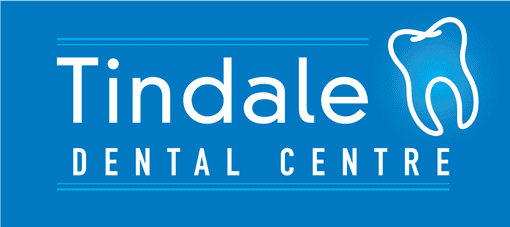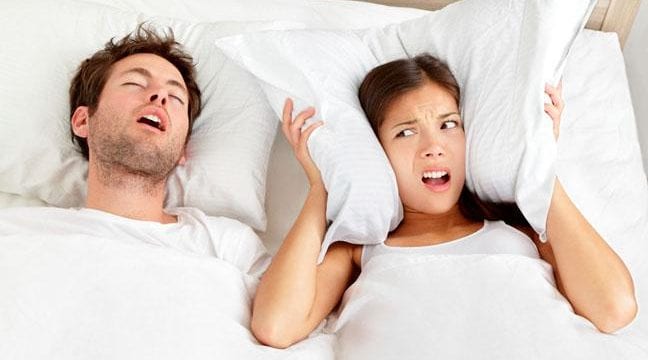
Sleep Apnea. Get to know the symptoms and causes.
Sleep Apnea Symptoms
Apart from snoring (and the relationship problems that can go with it), the first signs of Obstructive Sleep Apnea (OSA) that many people notice is falling asleep easily in the daytime — in front of the TV, at work or on public transport.
Others catch themselves nodding off behind the wheel, an event that becomes a literal wake-up call that something is very wrong.3
Other symptoms of OSA include: 7
- Poor concentration
- Morning headaches
- Depressed mood
- Weight gain
- High blood pressure
- Lack of energy
- Forgetfulness
- Reduced sex drive
- Night sweats
- Frequent urination at night
What is Sleep Apnea?
OSA is a serious and relatively common condition. 750,000 Australians have problems with their health due to OSA. It has been linked to:1-3
- High blood pressure
- Diabetes
- Heart failure
- Car and truck accidents
- Work accidents
- Stroke
There are two main types of sleep apnea; Obstructive Sleep Apnea and central sleep apnea*. 85% of people with sleep apnea have OSA.4 It is caused by the muscles in the back of your throat relaxing and interfering with your breathing while you sleep. 5
OSA can have a number of warning symptoms, including daytime sleepiness, weight gain and decreased sex drive.
The good news is that successful OSA treatment can relieve the symptoms and reduce the long-term risks to your health.6
Sleep Apnea Causes
When you go to sleep, the muscles at the back of your throat relax. When this happens, your airway can narrow or close as you breathe. Because your airway is partly blocked, snoring results. If the airway becomes completely blocked, you can’t get any air into your lungs.
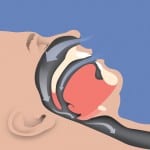
NORMAL AIRWAY |
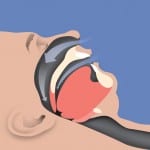
OBSTRUCTED AIRWAY |
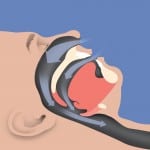
NARROWED AIRWAY: CAUSES SNORING |
This can happen many times a night without you being aware of it. You may think you slept all night. But obstructive sleep apnea causes poor quality sleep and often results in sleepiness during the day.¹ Your brain responds to the low oxygen level in your blood by briefly waking you from sleep so that you can take a breath. Your partner may notice that you make a gasping or choking sound.1
You can find out if you have sleep apnea, by having a sleep assessment.
*Central sleep apnea is a less common form of sleep apnea. It is caused by the brain failing to send the right signals to the muscles that control breathing. Some people have ‘complex’ sleep apnea, which is a combination of obstructive and central sleep apnea. A sleep assessment will determine whether you have these conditions.4
References
1 http://www.heart.org/HEARTORG/Conditions/More/MyHeartandStrokeNews/Sleep-Apnea-and-Heart-Disease-Stroke_UCM_441857_Article.jsp#.WD-2R6J97fA Accessed 1 Dec 16
2 http://www.idf.org/sleep-apnoea-and-type-2-diabetes Accessed 1 Dec 2016.
3 http://www.aasmnet.org/articles.aspx?id=5419 Accessed 1 Dec 2016.
4 Morgenthaler TI, et al. Complex sleep apnea syndrome: is it a unique clinical syndrome? Sleep 2006;29(9):1203-9. Accessed 30 Nov 2016.
5 http://www.mayoclinic.org/diseases-conditions/sleep-apnea/basics/causes/con-20020286 Accessed 30 Nov 2016.
6 http://www.jdsm.org/ViewArticle.aspx?pid=30229 Accessed 1 Dec 2016.
7 Palnitkar G, et al. Obstructive sleep apnoea in adults: identifying risk factors and tailoring therapy. Medicine Today 2012, 13(8):14-23.
